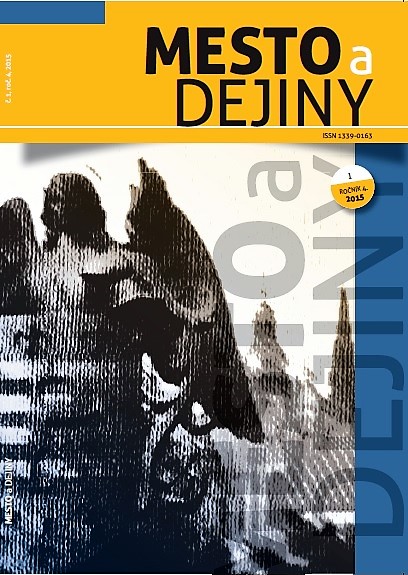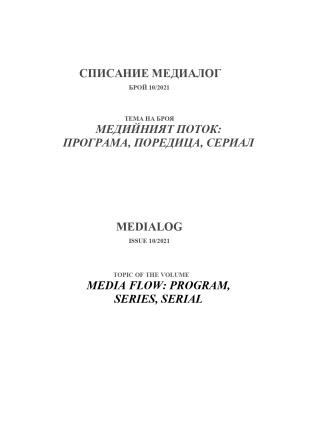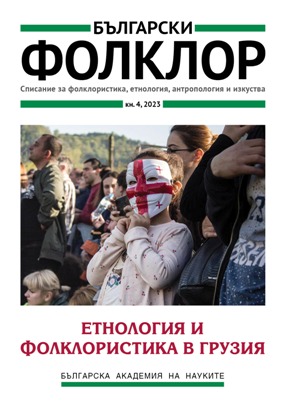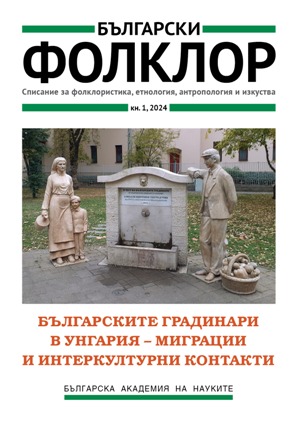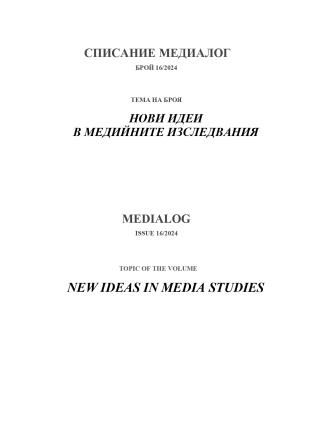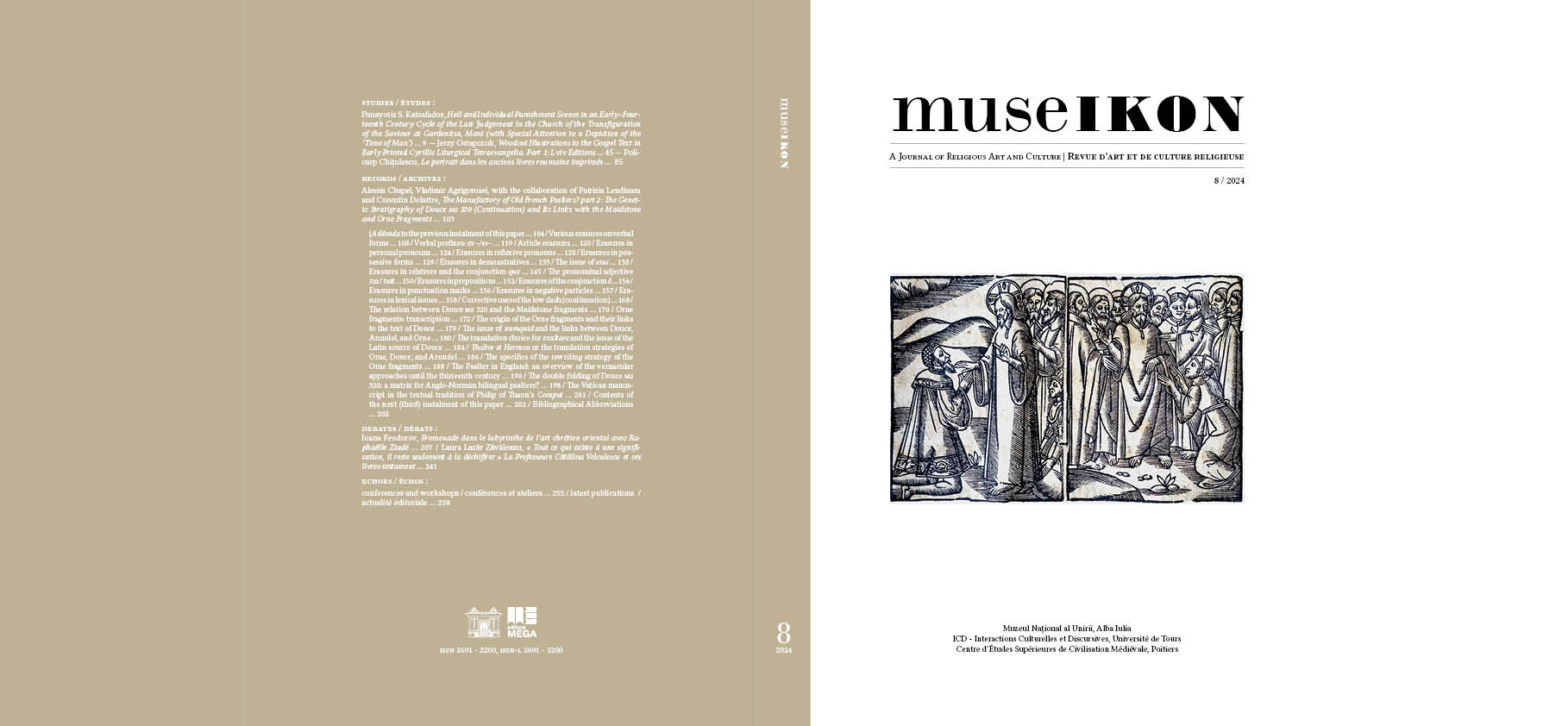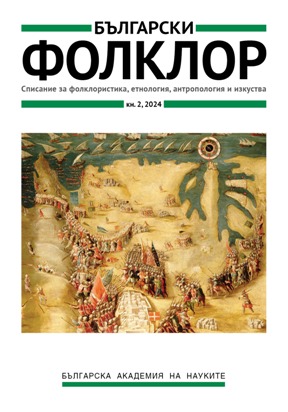Author(s): Panayotis Katsafados / Language(s): English
Issue: 8/2024
L’une des plus curieuses représentations du cycle du Jugement dernier de la péninsule de Mani (La-conie) peut être admirée dans le narthex de l’église de la Transfiguration, dans le village de Gardenitsa. Les représentations des pécheurs ont été initialement attribuées à un artiste du xviiie siècle, mais des travaux de restauration récents ont remis en question l’ancienne datation en faveur du xve siècle. L’Auteur montre, grâce à une analyse paléographique, que les caractéristiques des lettres et un certain nombre de particularités stylistiques peuvent être attribuées à un peintre local, Nomikos, dont l’oeuvre comprend d’autres églises peintes dans la région au début du xive siècle : l’église Saint-Georges à Marasse / Kitta, l’église Saint-Nicolas à Nymphi et le catholicon du monastère de Phaneromeni. Les peintures et les inscriptions de Gardenitsa pourraient être datées d’environ 1326/1327 et elles seraient, peut-être, parmi les dernières créations du peintre Nomikos. Contrairement aux châtiments individuels de pécheurs tels qu’on les connaît dans les peintures crétoises, chypriotes ou même serbes, le cycle peint sur la voûte ouest de l’église de Gardenitsa présente quelques traits qui le particularisent. Dans les huit cadres, regroupés en deux groupes de quatre sur les côtés nord et sud de la voûte, l’accent est sou-vent mis sur le clergé et les personnes qui lui sont liées (les femmes des prêtres, par exemple). Il n’y a pas de péchés de nature agricole ou familiale, et l’une des scènes représente un personnage mystérieux, ac-compagné d’une inscription qui se réfère au ‘Temps de l’homme’. C’est d’ailleurs la seule représentation d’un pé-cheur à Gardenitsa qui ne trouve pas de terme de comparaison dans les cycles de pécheurs d’autres régions du Commonwealth byzantin. L'auteur identifie un certain nombre de modèles qui semblent avoir fusionné pour créer une représentation entièrement nouvelle. Le premier est certainement la parabole du mauvais riche et de Lazare, dont la place est souvent parmi les scènes accompagnant le Jugement dernier, sauf que le riche représenté à Gardenitsa ne conserve que certaines caractéristiques iconographiques de la scène attendue. Une autre image qui semble avoir été utilisée dans la scène de Gardenitsa peut être celle de l’homme poursuivi par une licorne dans une parabole de l’histoire de Barlaam et Josaphat. L’arbre sur lequel s’appuie le riche de Gardenitsa et les deux chiens noir et blanc (au lieu des souris), symbolisant le jour et la nuit, sont des éléments qui semblent avoir été repris de cet autre modèle. Le troisième modèle pourrait être une série d’images que l’on retrouve dans des psautiers occidentaux. Après un inventaire succinct d’autres représentations occidentalisantes retrouvées dans la péninsule de Mani ou dans le reste du Péloponnèse, l’auteur conclut que les modèles fusionnés par l’artiste de Gardenitsa proviennent de manuscrits. Il pourrait s’agir des mêmes manuscrits que le donateur (aujourd’hui anonyme) semble offrir au Christ dans la scène votive. On suppose que ce fondateur est peut-être à l’origine des innovations iconographiques en question.
More...
